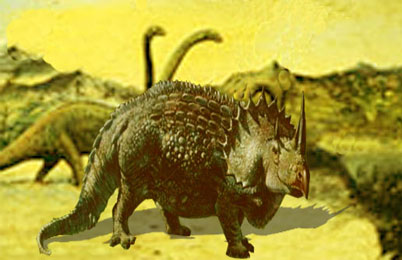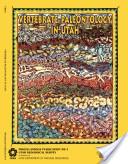Agathaumas Dinosaur ("great wonder") was a ceratopsid like Triceratops Dinosaur. Relatively little is known about the species, because the only fossils originate were the sacrum and pelvis of the dinosaur. We do know, however, that it lived during the Cretaceous period.

Today,
most argue that Agathaumas
is simply a mislabeled Triceratops.
Artist Charles R. Knight painted the dinosaur for Cope, creating a fantastic-looking beast, which blended the lengthy facial horns of Triceratops with the spiked frill of the Styracosaurus Dinosaur.
The artwork was exposed years later by stop-motion animator Willis O'Brien, who used the Agathaumas in the 1925 film The Lost World. The Agathaumas has appeared in a variety of forms since then, and if those who doubt its existence are correct, it is one of the more successful imaginary dinosaurs.
| Name: | Agathaumas Dinosaur ("great wonder") |
| Size: | Huge |
| Main Facts: | Agathaumas is non-diagnostic relative to Chasmosaurus, a plant eating dinosaurs from the late Cretaceous period |
 |
Vertebrate Paleontology |